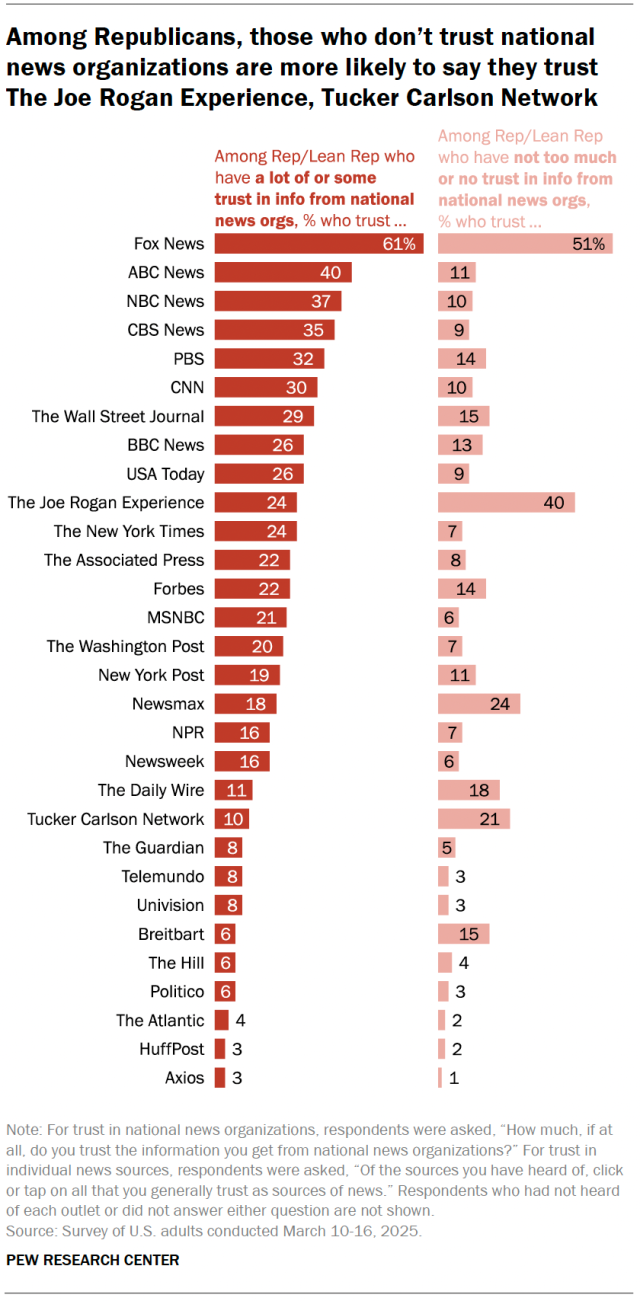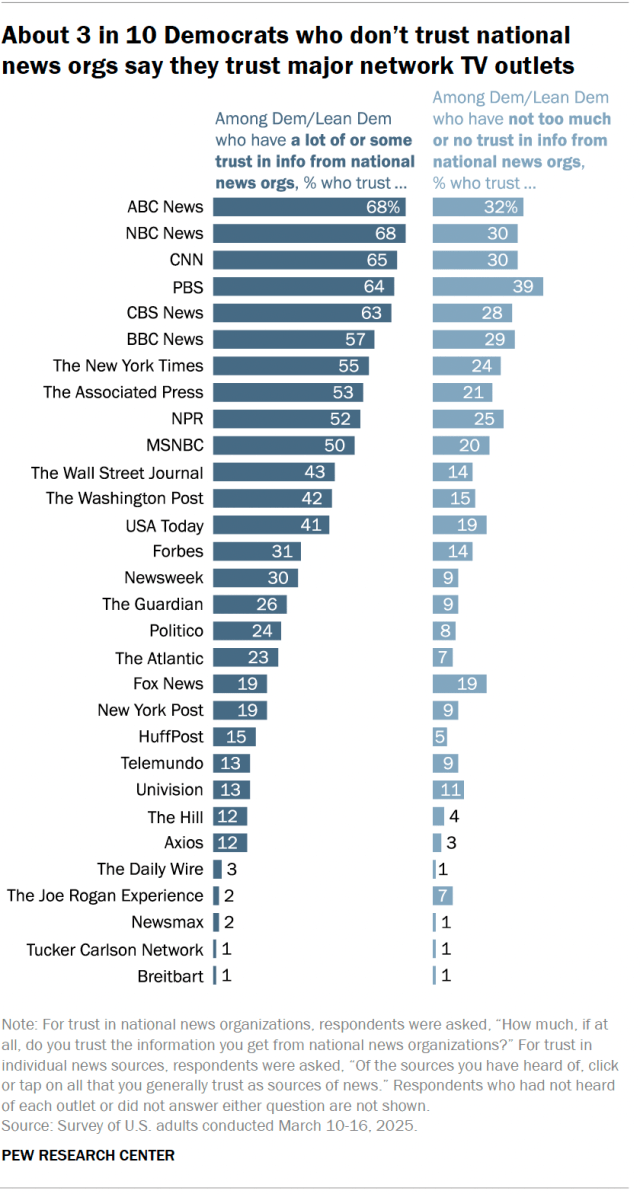
Pew Research Center has long asked Americans how much they trust information from national news organizations in general. Recently, we asked about their trust in 30 specific news sources.
It’s not surprising that people who trust national news organizations are more likely than those who distrust them to say they trust most of the 30 sources we asked about. But several news sources with right-leaning audiences are exceptions to this pattern, according to a new Center analysis that combines these general and specific measures of trust in the media.

This analysis helps answer the question: What news sources are Americans thinking of when they say they trust or distrust the information they get from national news organizations?
For U.S. adults who have at least some trust in the information they get from national news organizations, the answer most often seems to be major national TV sources. Within this group of “trusters,” about half or more say they trust ABC News (56%), NBC News (56%), CBS News (51%), CNN (51%) or PBS (51%). These are some of the most widely known and popular news sources we asked about.
Those who have not too much or no trust at all in the information they get from national news organizations are far less likely to trust these five sources. However, these “distrusters” are more likely than the “trusters” to say they trust six specific news sources: Fox News, The Joe Rogan Experience, Newsmax, The Daily Wire, Tucker Carlson Network and Breitbart. These have the most Republican and conservative audiences of the 30 outlets we asked about.
Views by party
Among Republicans and GOP-leaning independents

In general, Republicans and Republican leaners are much less likely than Democrats to trust the information they get from national news organizations. But Republicans who do trust national media view specific news sources differently than Republicans who don’t trust national media.
Republican “trusters” are most likely to say they generally trust Fox News as a source of news (61%) among the outlets we asked about. Substantial shares also say they trust TV networks like ABC News (40%), NBC News (37%) and CBS News (35%).
Republican “distrusters” are also most likely to say they trust Fox News (51%). But they’re much less likely than “trusters” to say they trust other major TV networks, as well as many other sources included in the survey.
They are also more likely than Republican “trusters” to say they trust several news sources with right-leaning audiences, including The Joe Rogan Experience, Newsmax, The Daily Wire, Tucker Carlson Network and Breitbart.
Among Democrats and Democratic-leaning independents

Democrats and Democratic leaners who don’t trust the information they get from national news organizations are generally less likely than other Democrats to trust most of the outlets we asked about.
Democratic “distrusters” are also different from Republican “distrusters.” This group of Democrats doesn’t tend to trust any specific sources much more than other sources.
And Democratic “distrusters” are much more trusting than Republican “distrusters” of many of the sources we asked about. For example, 32% of Democrats who have little to no trust in the information they get from national news organizations say they trust ABC News, compared with 11% of Republican “distrusters.”
Note: Here are the survey’s questions, the topline and the survey methodology.

